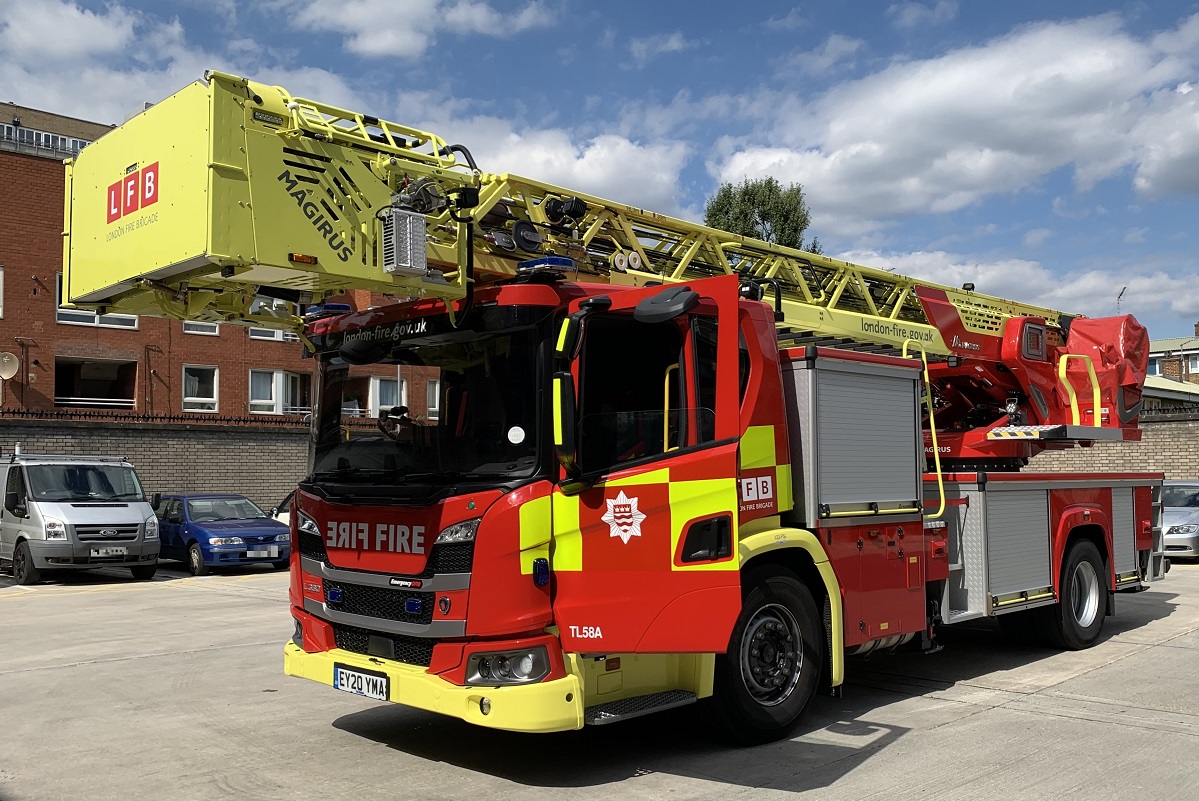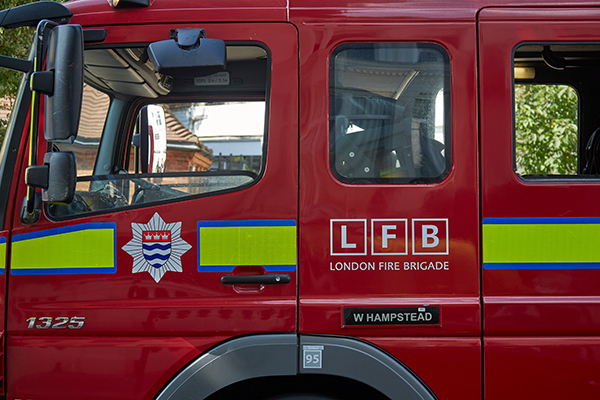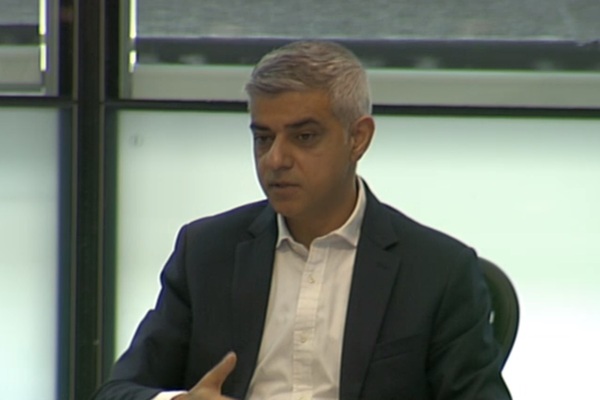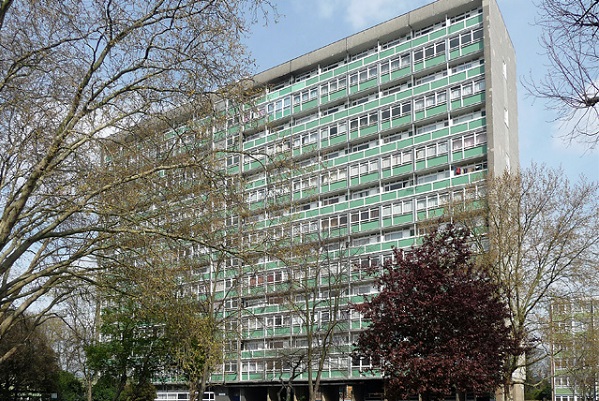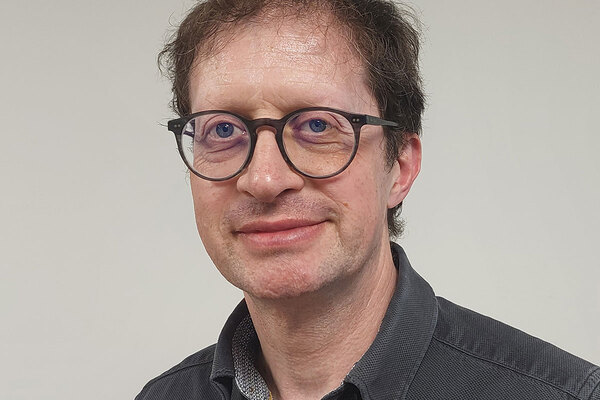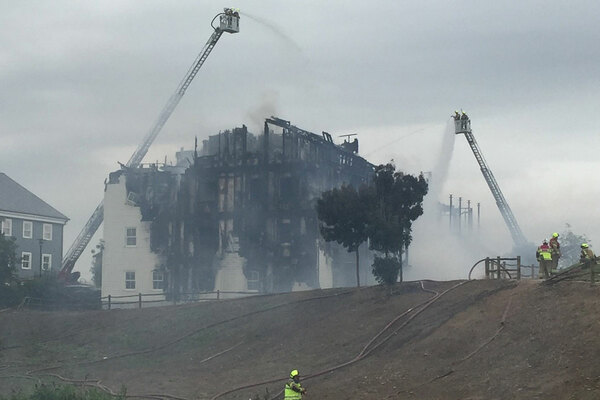You are viewing 1 of your 1 free articles
Meet Andy Roe, commissioner of the London Fire Brigade
At the unveiling of 12 new fire engines with 32m turntable ladders, Peter Apps sat down with London Fire Brigade commissioner Andy Roe to discuss dangerous cladding, waking watches and what social landlords need to do about dangerous buildings
If one of the many buildings with dangerous cladding in London caught fire tonight, would this new equipment make a difference?
In particular circumstances, yes. They give us quick and effective access further up buildings, so yes, in the right circumstances they will make a difference. But ultimately, the real difference for the residents inside those blocks is that the blocks get remediated, because no one piece of equipment or procedure will mitigate those circumstances.
There are 250 buildings across London – maybe more – where a waking watch is in place. How confident do you feel that you have the ability to evacuate those buildings if one did catch fire?
The first thing I would say is it’s not our evacuation strategy. It is the responsibility of the person who owns and manages that building to ensure that in the interim period, while those blocks are sorted out and remediated, you’ve got people there 24/7 who at the earliest opportunity can evacuate that block.
We’re bringing through improvements to training and policy so officers are better equipped to make decisions in the face of a building failing.
[But] the reality is, these buildings are not designed for mass emergency evacuation, and therefore if my officers find themselves in that situation, even in the early stages of [the] incident, it is a very difficult situation. All I can do is give them the best tools we have available to meet that threat.
National Fire Chiefs Council guidance is clear that waking watches should be temporary, but we have buildings in London where they have been in place for three years. How comfortable are you with that as a system?
I’m not particularly comfortable with that situation. [But] I think it is the best that can be done in the interim. I think having someone there 24/7 with a responsibility at the first sign of a fire to evacuate the block is very important.
If you’re saying that this would be a very challenging situation for your officers to face, who are some of the best-trained firefighters in the world, how is it possible for someone on minimum wage who has a security qualification to manage such a situation?
I think what the guidance does give is a default position of ‘first sign of trouble, everyone out’. That’s what those waking watches are about. It’s about early identification of a potential problem. Far better to turn an entire block out for no reason than not to. We’re not expecting them to replicate what a firefighter would do in a developing incident.
There are something like 250 buildings still with aluminium composite material cladding [as used on Grenfell], and 1,700 with dangerous claddings of other types. Do you think the government has done enough to get cladding off buildings in the three years since Grenfell?
I don’t think any one person is responsible for resolving this situation. I think government across the political spectrum have a real intensity to see the situation resolved. No one wants people they represent living in unsafe houses.
“The real difference for the residents inside those blocks is that the blocks get remediated, because no one piece of equipment or procedure will mitigate those circumstances”
I would say all stakeholders have to acknowledge that the pace of it has been too slow. And there are a complex set of reasons for that, but we shouldn’t let that be an excuse. I don’t think it’s helpful necessarily helpful to point at either government or developers or ourselves – I think we all have a shared responsibility.
But the Building Safety Fund is set to cover the costs of only around a third of the buildings requiring dangerous cladding removal. Do you think at least the government should have put more money into it?
I think, again, this is a complex area because sometimes it’s about who owns the buildings, sometimes it’s about how they’ve been built. What I would say is that money [the £1bn Building Safety Fund] is there. My sense from government is that ministers have an absolute intent to change this landscape to make it better and I am sure that they will look at all necessary measures to support that.
What I would say is what I have seen in phase two [of the Grenfell Inquiry] so far has been very disappointing. I accept the need for the fire brigade to change. I now expect the same, particularly of corporations and big developers responsible for these buildings. Because what I have heard so far does not make me think that they have fully accepted those responsibilities. So it’s not just about government and the money it has put up, it’s about corporations and developers really understanding their responsibilities.
The Lakanal House inquest, in 2013, raised a number of similar issues for the fire brigade to the Grenfell Tower Inquiry. Do you have any insight as to why those lessons were not learned in time?
I think what the inquiry report shows, and the subsequent inspectorate report shows… is that we weren’t enough of a learning organisation. That’s a very corporate phrase, but it is impossible to pretend that we learned those lessons.
I’ve got say… as one of the most experienced operational fire officers in the UK and having had a busy operational career in the military. I was unprepared for what I saw that night. It was on a scale and [behaved with] a ferocity that is almost indescribable unless you were there. So, I think some of the lessons post-Lakanal were learned, but that people did not have enough imagination to see that it might happen on that scale.
What I can say is, moving forward, I’m absolutely determined to ensure that we do learn those lessons, that we become an organisation that is transparent and relentless in its desire to pick up any intelligence that is out there and make changes on the basis of that.
[But] I do accept Sir Martin Moore-Bick’s point, which is we could have learned better and in not doing so we let parts of that community down, parts of London’s communities down. And I need to work very hard to regain that trust.
What’s your view on why the London Fire Brigade was not as much of a listening organisation as it should have been?
I think it speaks to years of an of erosion of professional standards that started maybe 15, 20 years ago with the dismantling of national structures. I think it points to a culture which is very strong in many ways and positive, but quite inward looking, that was effectively unregulated for many years.
It’s only in the past couple of years we’ve had the return of the inspecting body. If you look at any other major industry in the public sector, whether it’s health prisons, or policing, or even social care, almost every other industry has someone to really clearly and objectively hold it to account. The problem was we were asked to judge ourselves and human nature means that we don’t always do that with the greatest of rigour, I’m afraid. And that’s been proven time and time again across other industries, and so I really welcome the coming of the inspectorate.
“What I would do is pose a question to the people who own or manage those buildings. Grenfell is real. Seventy-two people died as a result of that incident in astonishing conditions a modern city. Do you want to be the next landlord in an inquiry?”
What about government? We didn’t get sprinklers after Lakanal or changes to the regulations or investment in the fire service. Did they fail to prepare for Grenfell?
I think that it’s impossible for me to answer that because I wasn’t operating at a level where I was in communication with governments.
What I would say is that Grenfell, for me, personally, was a manifest failure of almost every system that was meant to underpin the safety of residents in their home.
And that includes government, it includes us, it includes local authorities, it includes the developer, the architects, the inspectors. I see it as a total failure of system, that people in modern London could have gone to bed thinking they were safe in their homes and tragically 72 of them lost their lives. So, I think that actually the responsibility lies across a very wide range of stakeholders and that the sooner everyone accepts their responsibility as part of it, the quicker we will remediate this situation.
What is your message to a social landlord who has dangerous blocks that require remediation?
Understand your responsibilities really clearly. If you’ve got people living in an unremediated block, you have to consider very carefully whether you’ve done everything in your power to begin that remediation because until you have, you hold some of the responsibility for the unsafe condition that those people are living in.
What I would do is pose a question to the people who own or manage those buildings. Grenfell is real. Seventy-two people died as a result of that incident in astonishing conditions a modern city. Do you want to be the next landlord in an inquiry, or do you want to be someone held responsible for that sort of loss of life?
You need to ask yourself that question in a clear-sighted way, and you need to be very confident you have done everything in your power as it stands to improve that situation.
Answers abridged
Sign up for our weekly Grenfell Inquiry newsletter
Each week we send out a newsletter rounding up the key news from the Grenfell Inquiry, along with the headlines from the week
Already have an account? Click here to manage your newsletters
